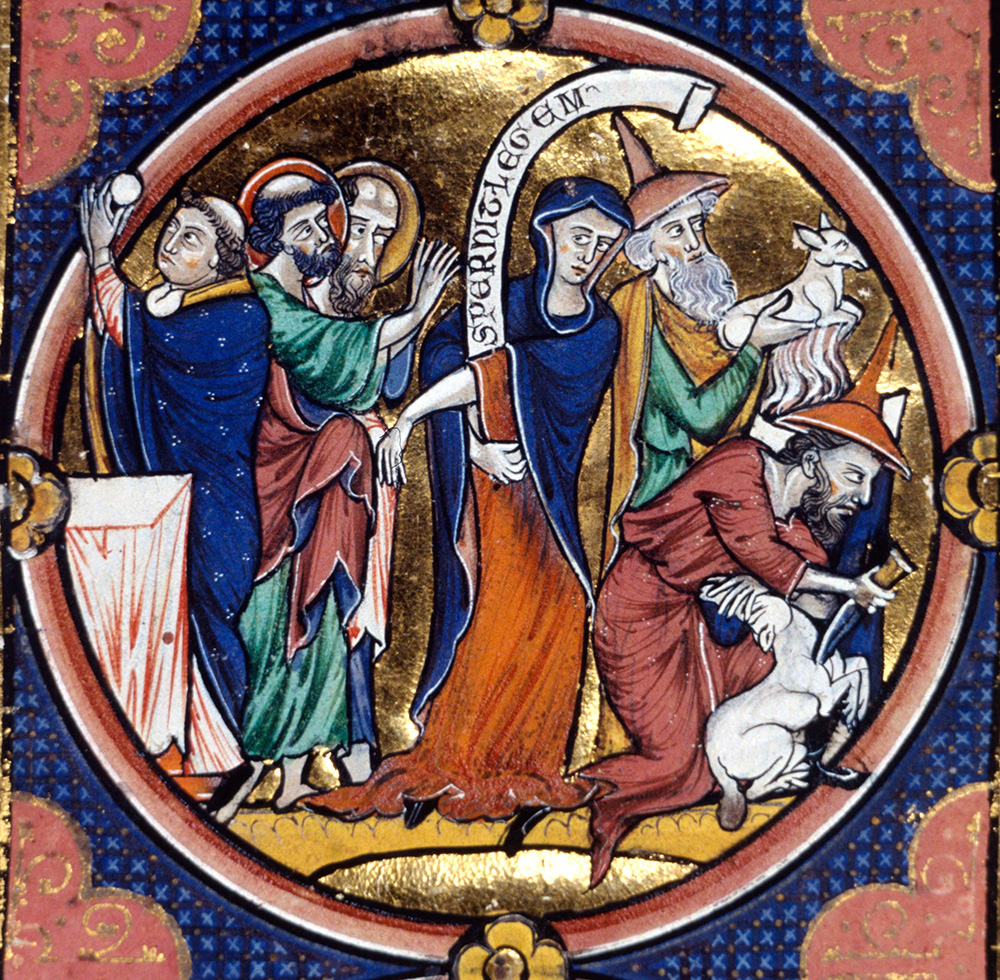Medieval Studies celebrates 50th anniversary
By Linda B. Glaser

Fifty years since its founding, the Medieval Studies Program is thriving, says Alice Colby-Hall, professor emerita of Romance studies and a founding member of the program.
“Cornell’s medievalists and their students are as enthusiastic as ever and still discover groundbreaking connections between the different disciplines within the field,” Colby-Hall said.
On Monday, May 9, at 3:30 p.m., the Medieval Studies Program will celebrate its 50th anniversary in Kaufmann Auditorium, Goldwin Smith Hall.
“Program faculty study the medieval period from wide-ranging perspectives in an effort to better understand the human condition. Many of the issues we explore in medieval studies resonate with issues that confront modern society,” says program director David Powers, professor of Arabic and Islamic studies in the Department of Near Eastern Studies and an adjunct professor of law at Cornell Law School.
The Medieval Studies Program comprises 29 faculty members from 12 departments across the College of Arts and Sciences who offer expertise in a wide array of disciplines and area studies spanning more than a millennium of languages and cultures – from Old and Middle English literature to Byzantine monuments; Viking studies to Andalusian architecture; Chinese intellectual history to Islamic legal history. Gender studies, ethics and morality, aesthetics, religion and politics, migration, climate change, and many other themes are explored.
Although Cornell’s program has particular strengths in the study of Europe, it encompasses the world, with medievalists specializing in Asia and Islam. “Our global approach to medieval studies is one of the strengths of Cornell’s program,” says Powers.
50th anniversary celebration
The 50th anniversary celebration will feature a ceremony honoring three charter members of the Program: Alice Colby-Hall; James John, professor emeritus of history; and Brian Tierney, the Bryce & Edith M. Bowmar Professor in Humanistic Studies Emeritus. It also will include a roundtable discussion by medieval studies faculty reflecting on the history of the program.
The keynote speech will be delivered by Don Randel, Cornell professor emeritus of musicology, chairman of the board of the American Academy of Arts and Sciences, former dean of the College of Arts and Sciences and former Cornell provost. Randel’s talk, “What’s the Middle Ages Got to Do With It?” will reflect on the relationship between his training as a medievalist and his career in public (academic) service. A reception will follow in the Groos Family Atrium of Klarman Hall.
Medieval Studies is the only program in the College of Arts and Sciences that administers doctoral degrees, accepting two to three new students per year. Currently there are 16 medieval studies graduate students plus 10 medievalists in other graduate fields.
The program attracts excellent graduate students who are energetic and self-directed, says Powers, and they use their energy to good effect, organizing numerous events over the course of the year, including a monthly Medieval Round Table to read and critique a chapter of one of their dissertations; an annual Medieval Studies Student Colloquium; and a work-in-progress discussion group.
Quodlibet, the popular undergraduate society for medieval studies, is also very active, organizing fall and spring guest lectures.
Fostering an institutional sense of community has always been an important component of the program. Each December medievalists from across departments and programs congregate for Medieval Readings, an afternoon of food, drink and the recitation of poetry and prose in languages current at different times and in many places throughout the medieval world.
The program also has active reading groups in Old English, Medieval Latin, Old French, Old Norse and Medieval philosophical texts, monthly brown bag lunches and a working group on medieval cosmology.
Medieval studies at Cornell dates back to 1865 and medievalist Andrew Dickson White, co-founder of the university and its first president. White hired a number of important medievalists during his tenure as president, including Thomas “Teefy” Frederick Crane, immortalized in the opening line of the Cornell fight song, “Give My Regards to Davy/Remember me to Teefy Crane.”
“Several medievalists served as presidents and acting presidents of Cornell,” notes Powers. “These were people with wide and expansive horizons, polyglots, interested in manuscripts, books, maps, art, sculpture, language, folk tales, diplomacy and politics.”
In 1966, the College of Arts and Sciences had a group of medievalists on its faculty who lobbied vigorously for the creation of a medieval studies program that would train undergraduates and graduate students.
Arthur Groos, the Avalon Foundation Professor of the Humanities in the Department of German Studies, recalls that at the founding of the Medieval Studies Program there was a “palpable sense of excitement about this new way to study a historical period that seemed to demand the kind of cross-disciplinary work that Cornell offered, but also the thrill of on-going intellectual exchanges with professors outside of class, on campus or in their homes.”
Linda B. Glaser is a writer for the College of Arts and Sciences.
Media Contact
Get Cornell news delivered right to your inbox.
Subscribe